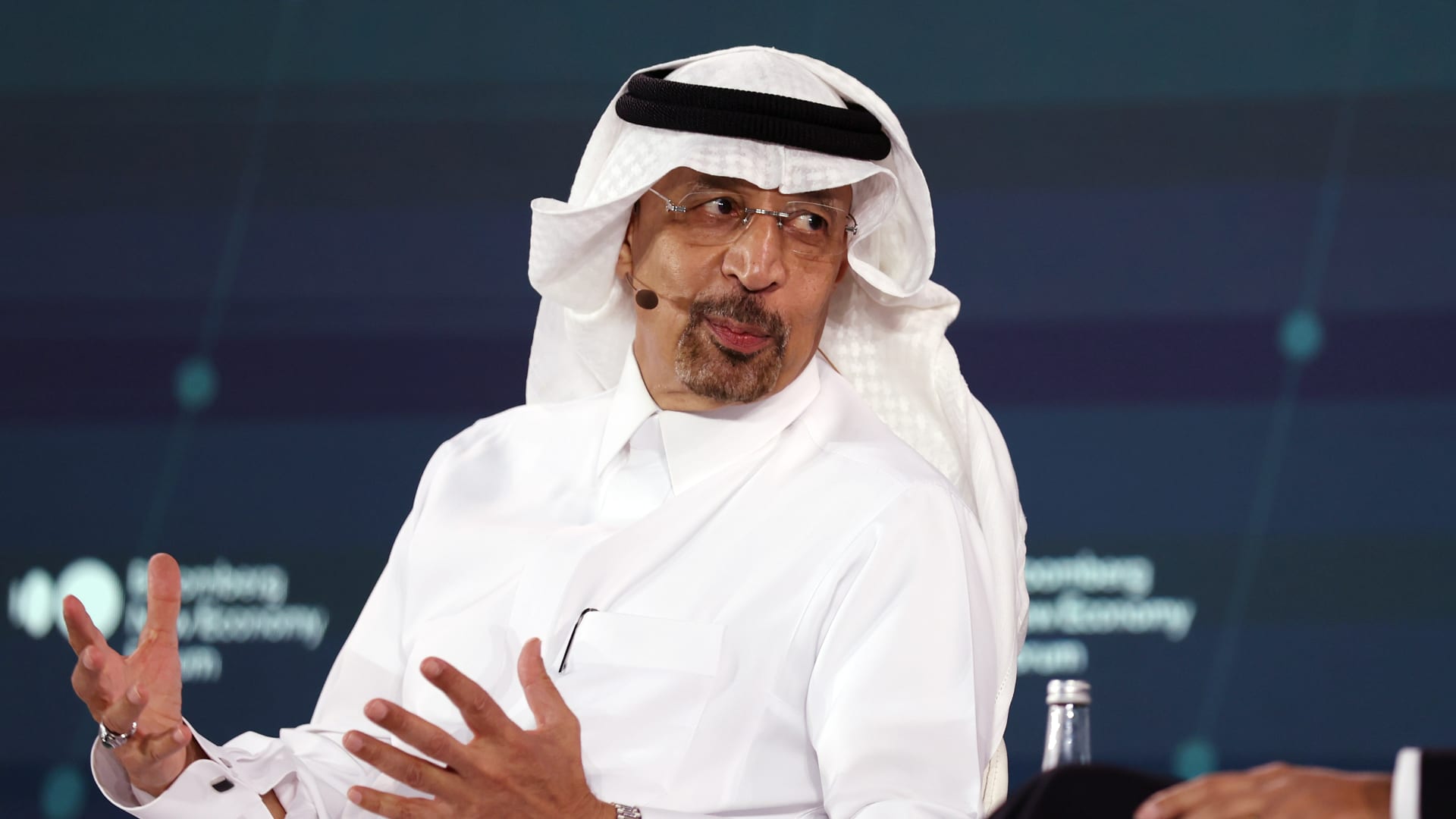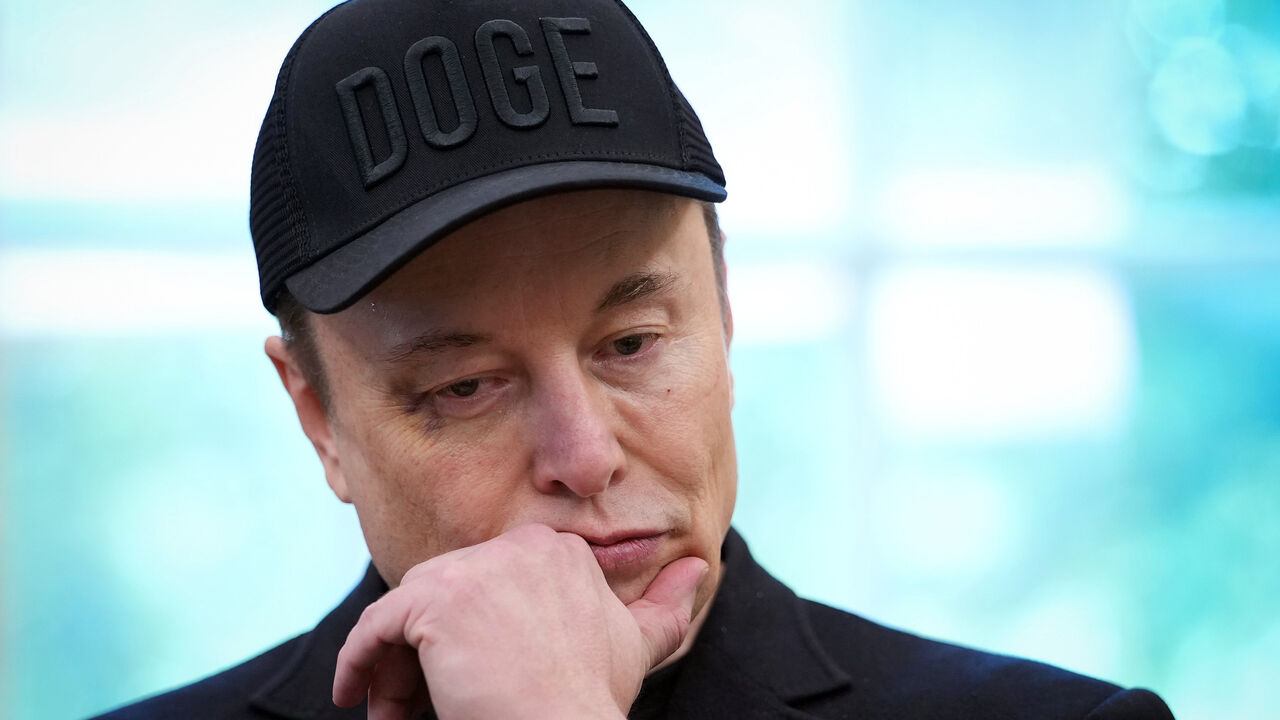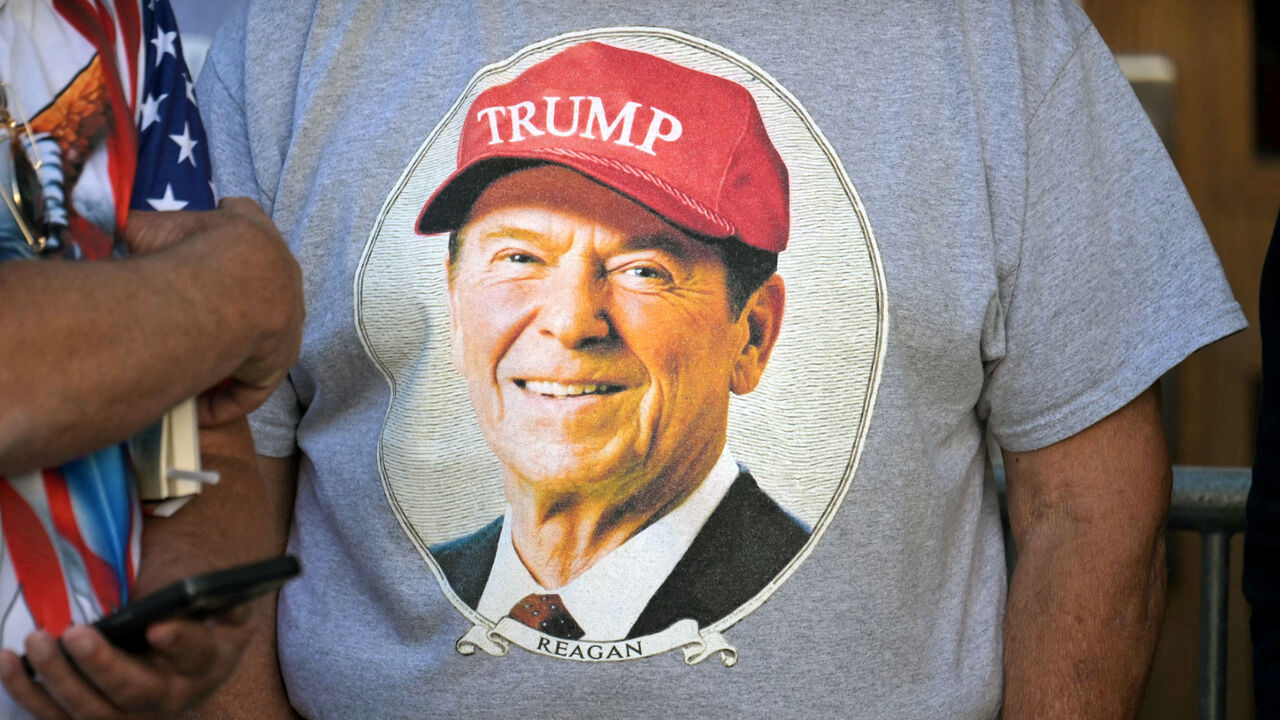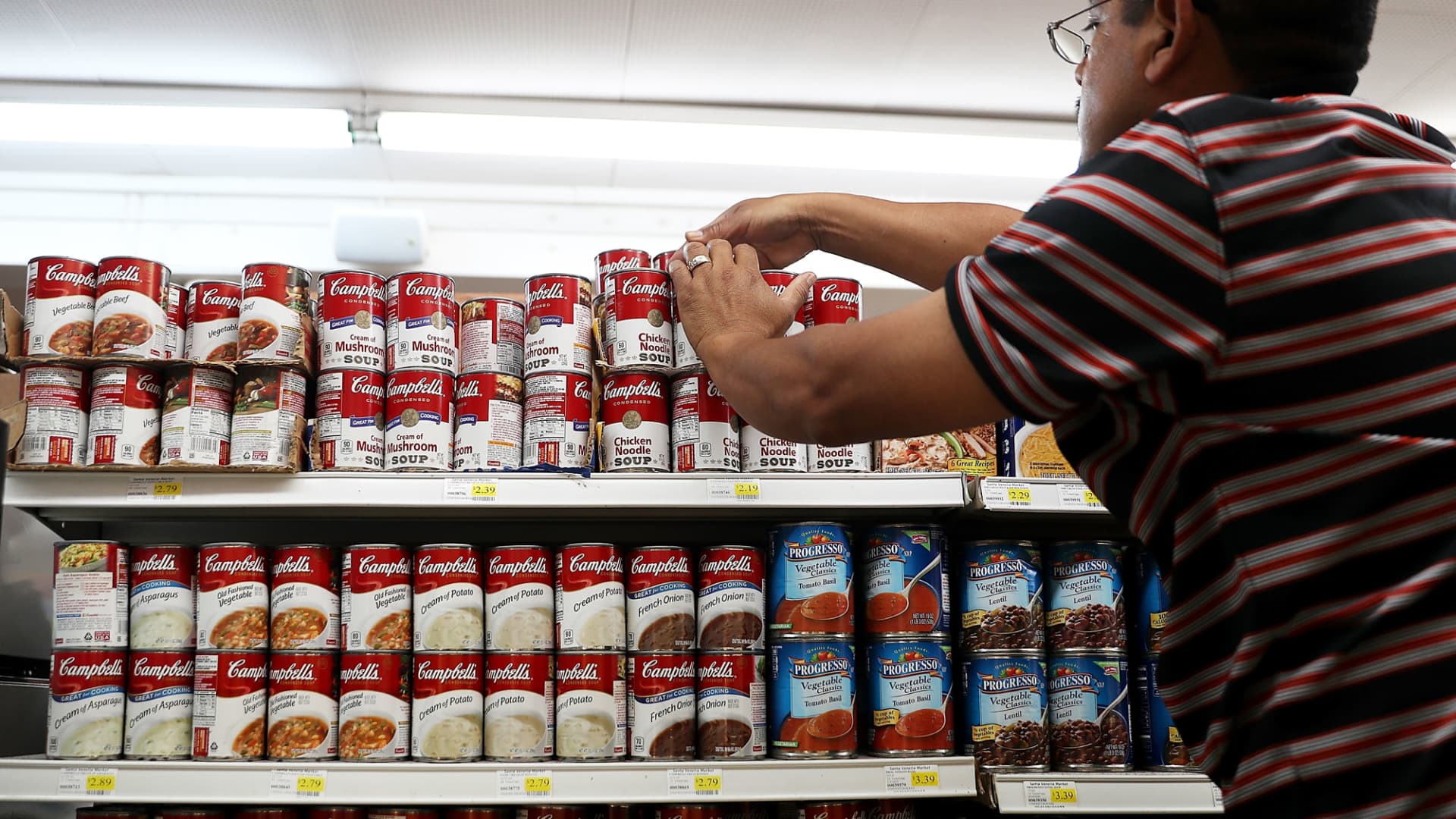Khalid Al-Falih, Saudi Arabia’s investment minister, during the Bloomberg New Economy Forum in Singapore, on Wednesday, Nov. 8, 2023.
Bloomberg | Bloomberg | Getty Images
Saudi Minister of Investment Khalid al-Falih pushed back against skepticism over the country’s economic diversification plan, as Riyadh touts “green shoring” investment opportunities to woo foreign financing.
“There was many people who doubted the vision, the ambition, how broad and deep and comprehensive it is, and whether the development of a country like KSA who is so dependent for so many decades on a commodity business like oil would be able to do what we are aspiring to do with Vision 2030,” al-Falih told CNBC’s Steve Sedgwick on Saturday at the Ambrosetti Forum in Cernobbio, Italy.
One of the largest economies in the Middle East and a key U.S. ally in the region, Saudi Arabia has been shoring up investments in a bid to materialize Crown Prince Mohammed bin Salman’s Vision 2030 economic diversification program, which spans 14 giga-projects, including the Neom industrial complex.
Under this initiative, Riyadh seeks to pivot away from its historical dependence on oil revenues — which the International Monetary Fund now sees rising until 2026, before starting to descend — and hopes to draw financial flows in the domestic economy exceeding $3 trillion, as well as push foreign domestic investment to $100 billion a year by 2030.
The Saudi minister on Saturday said that, eight years into manifesting Vision 2030, the kingdom is now “more committed, more determined” to the program and has already implemented or is about to complete 87% of its targets. Critics of the plan have previously questioned whether Riyadh will successfully deliver on its goals by its stated deadline.
In recent years, the kingdom has been attempting to liberalize its market and improve its business environment with reforms to its investment and labor laws — but has also formulated less popular requirements for companies to set up their regional headquarters in Saudi Arabia to access government contracts.
The number of foreign investment licenses issued in Saudi Arabia nearly doubled in 2023, the IMF noted, with government data pointing to a 5.6% annual increase in net flows of foreign direct investment in the first quarter.
Concerns have nevertheless lingered over the potential uncertainty and unpredictability of the kingdom’s legal framework and its dispute resolution system for foreign investment. Al-Falih insisted that Saudi Arabia boasts predictability, as well as domestic political and economic stability.
‘Green shoring’
The Saudi investment minister said that part of Riyadh’s offering to foreign investors is the Saudi-coined initiative of “green shoring,” which seeks to decarbonize supply chains in areas with renewable energy resources.
“Green shoring is basically saying you need to do more of the high energy processing [and] manufacturing value add in areas where the materials, as well as the energy, are [located],” al-Falih said, adding that Saudi Arabia has the logistics, capital and infrastructure to achieve this.
Under Vision 2030, the world’s largest oil exporter aims to achieve net-zero emissions by 2060. Along with its neighbor, the United Arab Emirates — which hosted the 2023 gathering of the annual U.N. Conference of the Parties — Riyadh has been a high-profile presence at climate summits, but has still drawn questions over its commitment to decarbonization.
Riyadh — along with other members of the Organization of the Petroleum Exporting Countries oil alliance — has repeatedly called for the simultaneous use of hydrocarbons and green resources in order to avoid energy shortages throughout the global transition to net-zero emissions.
Some climate activists have also criticized Saudi Arabia’s promotion of solutions like carbon capture and storage (CCS) technologies as a smokescreen to push ahead with its lucrative oil business.
As part of “green shoring,” Saudi Arabia sets out to “address global supply chain resilience issues” and “build a new global economy that is certainly moving more electric, as we bring the copper, as we bring the lithium, the cobalt, the other critical materials, rare earth metals, as we address semiconductor shortages, green fertilizers, green chemicals,” al-Falih stressed.

 Personal Finance1 week ago
Personal Finance1 week ago
 Blog Post1 week ago
Blog Post1 week ago
 Economics6 days ago
Economics6 days ago
 Economics1 week ago
Economics1 week ago
 Accounting6 days ago
Accounting6 days ago
 Personal Finance1 week ago
Personal Finance1 week ago
 Economics6 days ago
Economics6 days ago
 Personal Finance6 days ago
Personal Finance6 days ago






















